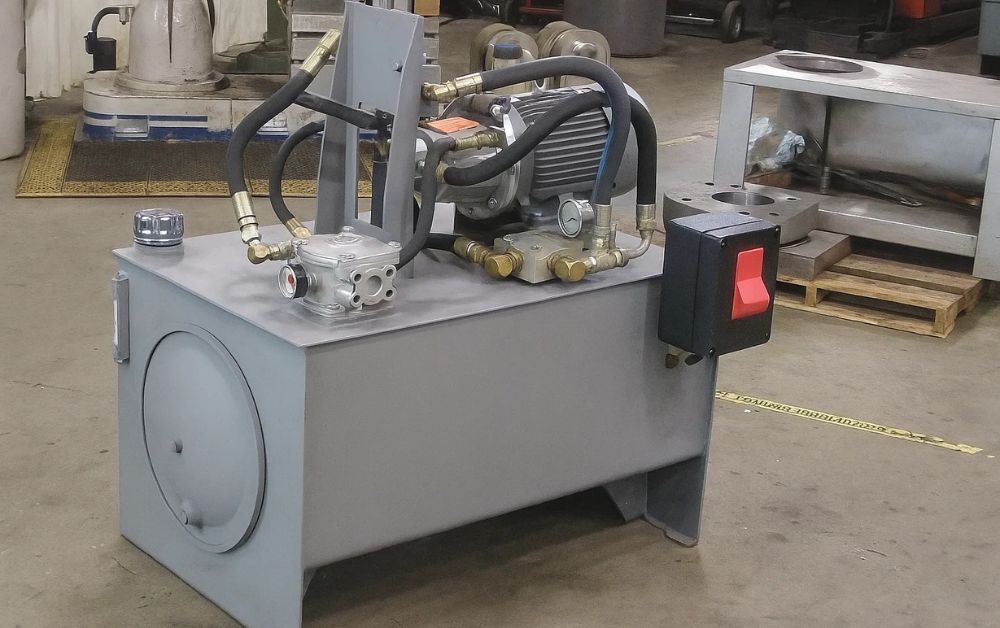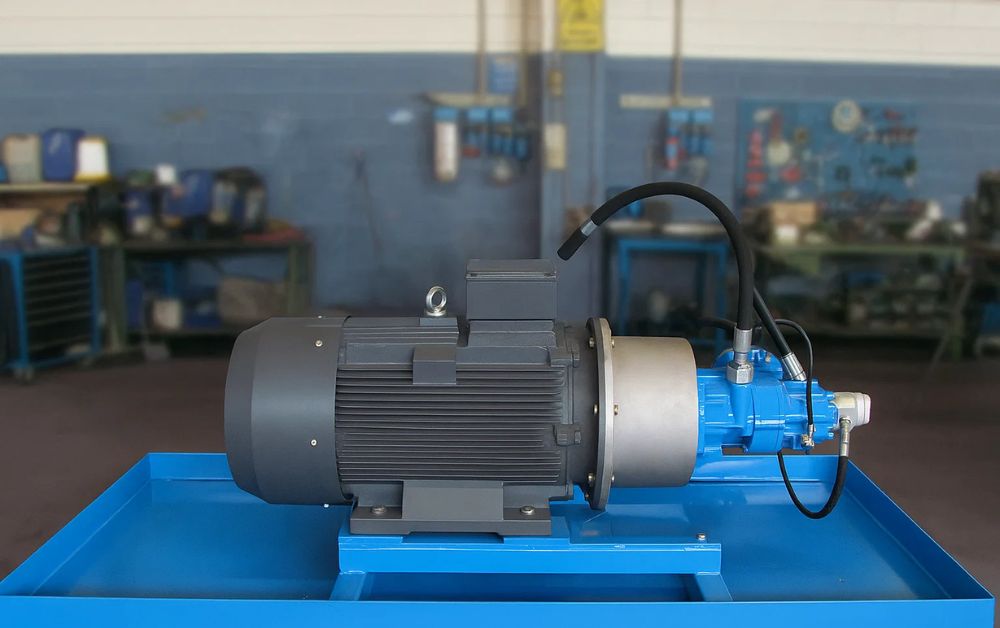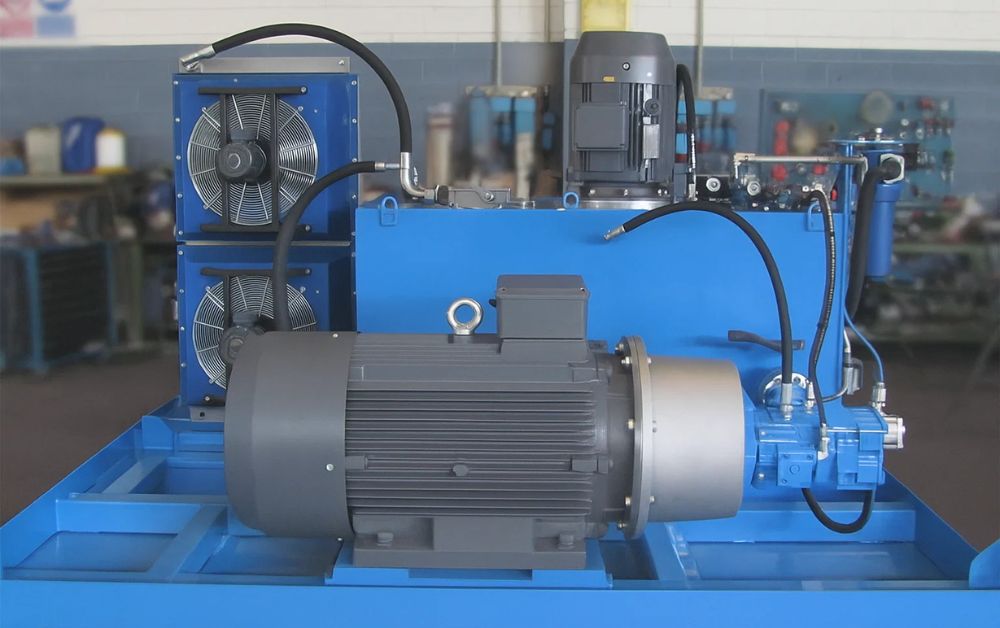Hydraulic motors are vital components in various industrial and mobile machinery applications. From construction equipment and agricultural machines to manufacturing systems and mining tools, these motors convert hydraulic energy into mechanical power, enabling smooth and powerful movement. However, like any mechanical component, hydraulic motors can develop problems over time. Knowing how to detect and resolve these issues is essential for reducing downtime and preventing costly failures. This blog offers expert tips on Hydraulic Motors Repair, helping operators and maintenance teams ensure long-lasting and efficient equipment performance.

Understanding the Basics of Hydraulic Motors
Before diving into diagnostics and repairs, it’s important to understand what a hydraulic motor does. In simple terms, it transforms fluid pressure from a hydraulic pump into rotational mechanical energy. The motor’s performance is directly tied to the health of the entire hydraulic system, including pumps, valves, hoses, and filters.
Hydraulic motors are used in various industries for powering:
- Conveyor belts
- Winches and cranes
- Agricultural machinery
- Drilling rigs
- Earth-moving equipment
Given their continuous use in demanding environments, proper attention to Hydraulic Motors Repair becomes a necessity.
Common Signs of Hydraulic Motor Problems
Early detection is key to minimizing repair costs and machine downtime. Look out for these warning signs:
1. Reduced Motor Performance
If the motor isn’t providing the expected torque or speed, internal leakage or worn-out parts might be the culprit.
2. Overheating
Overheating indicates poor lubrication, excessive load, or contamination. It also points to possible seal damage or blocked return lines.
3. Unusual Noises
Grinding, whining, or knocking sounds often signal cavitation, air entrapment, or component misalignment.
4. Hydraulic Fluid Leakage
Visible leaks around the motor body or hoses may indicate seal failure or cracked housing, both of which need immediate attention.
5. Erratic Movement
Jerky or inconsistent operation can result from trapped air, contamination, or improper fluid pressure.
Spotting these symptoms early allows for timely Hydraulic Motors Repair, potentially saving thousands in future repair or replacement costs.
Expert Repair Tips for Hydraulic Motor Issues
1. Visual and Diagnostic Inspection
Start with a thorough external inspection of the motor and its connections. Look for signs of leakage, wear, or loose fittings. Use pressure gauges and flow meters to test performance metrics and isolate the cause of failure.
2. Check Hydraulic Fluid Quality
Contaminated fluid is one of the most common causes of motor damage. Use a fluid analysis kit to check for water, dirt, or metal particles. Replace the fluid and filters if necessary.
3. Disassemble and Clean
For more severe issues, disassemble the motor carefully. Clean internal components like gears, rotors, and seals using approved cleaning agents. Check for scoring, pitting, or wear on critical parts.
4. Replace Worn-Out Parts
Damaged seals, bearings, or vanes should be replaced with OEM-certified parts. Avoid cheap substitutes that compromise performance and reliability.
5. Reassembly and Testing
Once repairs are complete, reassemble the motor and test it under controlled conditions. Monitor pressure, temperature, and flow to ensure the system is functioning properly.
Preventive Measures to Avoid Future Failures
While reactive maintenance is necessary, prevention is always better than cure. Here’s how to reduce the need for frequent Hydraulic Motors Repair:
- Regular maintenance checks: Schedule monthly inspections for signs of wear, fluid levels, and system pressure.
- Use quality hydraulic fluid: Always follow manufacturer recommendations for fluid type and change intervals.
- Install filtration systems: Clean fluid is crucial for motor health. Inline and return filters help remove contaminants.
- Avoid overloading: Operate within the recommended load and pressure ratings to prevent undue stress on components.
- Train your operators: Equip them with knowledge about signs of failure and safe operating practices.
By integrating these habits into your maintenance schedule, you’ll extend motor life and reduce unplanned breakdowns.
When to Call a Professional
Some hydraulic issues can be resolved in-house, but others demand professional expertise. It’s best to seek external help when:
- The internal components are complex and require precision repairs
- You lack diagnostic tools or proper spare parts
- The motor fails repeatedly despite basic repairs
- The equipment is critical and downtime is costly
Professional services bring specialized knowledge, accurate tools, and high-quality replacement parts, ensuring the job is done right the first time.

Conclusion: Power Hydraulics – Your Go-To Expert for Hydraulic Motors Repair
Whether you’re dealing with minor issues or complete system breakdowns, trust in a name that stands for quality and reliability in Hydraulic Motors Repair. Power Hydraulics brings years of technical expertise, advanced diagnostic tools, and a dedicated team of professionals who understand hydraulic systems inside out. From precision repairs and part replacements to preventive maintenance and custom solutions, Power Hydraulics ensures your hydraulic motors deliver peak performance—day in and day out. When performance matters, let Power Hydraulics be your trusted repair and service partner.



